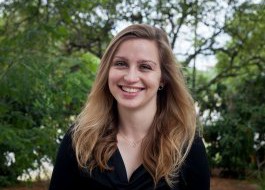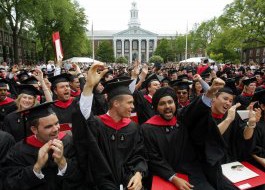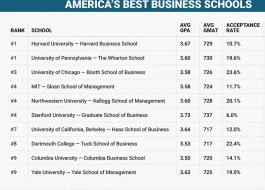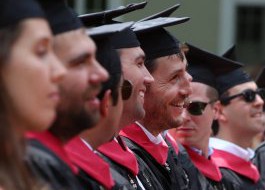 First-year Harvard Business School student Ayse Baybars. Ayse Baybars
First-year Harvard Business School student Ayse Baybars. Ayse Baybars
The student: Ayse Baybars, 27
Hometown: Pittsburgh, Pennsylvania
The school: Harvard Business School (HBS) 2018
Undergraduate:Harvard University 2012; major in human evolutionary biology and minor in English
Work experience: Small nonprofit focused on STEM; lingerie startup Peach
Her best admissions advice: "Be true to who you are. Don't try to craft the story before you've lived it. The story and the narrative will come as long as you pick steps with authenticity that speak to what you want to do."
Ayse Baybars is a first-year Harvard Business School (HBS) student, though looking at her background you may not have guessed that.
She graduated from Harvard University in 2012 with an undergraduate major in human evolutionary biology and a minor in English, and then started working at a small, STEM-focused nonprofit. Later, she worked at a lingerie startup called Peach.
But continue talking to Baybars and her business acumen shines through. "The bra industry is extremely ripe for disruption," Baybars told Business Insider before launching into a discussion about Victoria Secret's market share.
An MBA from Harvard is arguably one of the most powerful degrees an aspiring business student can procure. With an 11% acceptance rate for the class of 2018 and the middle 80% of students scoring between 690 and 760 on the GMAT, the HBS admissions process is competitive.
In some ways, Baybars' nontraditional background may have helped her stand apart from other applicants. "I'm one of the only blond females with a science degree here," she said, noting that the HBS male-female split is about 60-40. Of the students with a science background, there are more with engineering degrees than other science majors, she said, further distinguishing herself from the traditional HBS applicant.
Still, having a nontraditional background alone won't get you noticed by the HBS admissions team. She focused on connecting her background to tell a story about why she's seeking a business degree.
"A lot of it is creating a story and crafting it and then tying it with a ribbon beautifully and presenting it to somebody," Baybars said. "You want that story to be authentic," she continued.

To get there she said she spent hours on the phone with several friends, talking through her background. She mimicked those conversations to explain how she got the discussion of her story right.
"The reason I went to this bra company is because they had this science bent and this algorithm, and I had spent my undergraduate years writing a thesis on modeling running and optimal running cadence," she said. "There was a ribbon there that, not worded properly, would not have been obvious, but worded properly becomes quite obvious and it makes a lot of sense as to why I'm on the path I am," she continued.
All of this preparing was in part to ensure Baybars would be able to appropriately convey her story in one of the interviews HBS conducts before admitting students. Only about 25% of applicants make it to the interview round, and about half of those interviews end up with a spot at HBS.
The interview is a one-on-one discussion with a member of the admissions team, and there is another person in the room taking notes. Baybars not only prepared to be able to discuss why she had chosen the major and career path she had, but also what she would add to the community.
"I am one of the only students with a science background who also has significant startup experience, so I think that brings a very different view to our case discussions when we talk about making decisions using very little data," she said. She also spoke to a real-world example of how she brought out the best in coworkers at a prior job: "I was unofficially Chief Morale Officer at my most recent job at Peach, so I'm here to bring us levity and help build strong culture."
Baybars also read up on business, technology, and science current events, as the interviewer makes a point to ask about the news, she said.
Now that Baybars is at Harvard, she again seems to be taking a slightly nontraditional approach to finding her summer internship. She's not pursuing a job in finance or consulting so was not bound to the recruiting schedule that can start as early as the first few weeks of an HBS student's first month on campus.
For now, Baybars has not decided definitively what she will do after graduation — but she wants to use the summer as an opportunity to try something new. "In some ways, she said, "I think the summer between your two years is kind of a gift to explore something completely different."
Are you a current student at an elite business school? Email [email protected].




